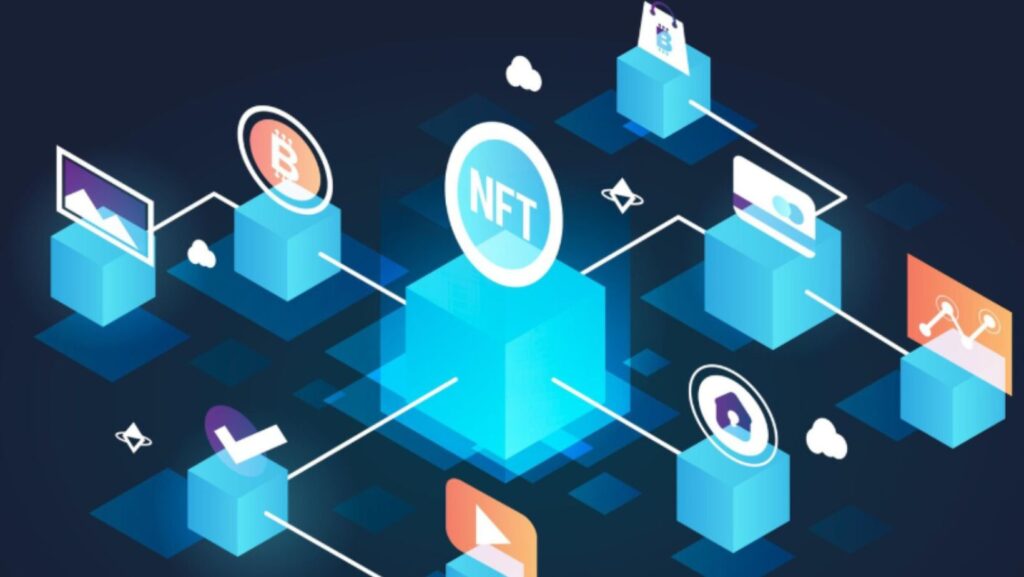
Whilst blockchain was once just a talking point for cryptocurrency enthusiasts in the mainstream, the application of this fascinating technology in other industries has really captured our attention over the past decade or so. In truth, blockchain technologies are silently revolutionising industries worldwide, redefining processes and infrastructure in sectors like finance, healthcare, supply chain management, and the entertainment industry – just to name a few.
And just as the scope of blockchain in the corporate world is expanding at a rapid-fire rate, so too is the demand for professionals that possess specialised skills and formal training in utilising blockchain technologies.
No matter if you’re just starting out or considering switching careers, the opportunities in blockchain as a field of study are virtually endless, as blockchain technologies can really be applied to digital systems worldwide to bolster commercial data management processes, elevate digital service offerings like B2B SaaS solutions, and just generally making our digital infrastructure easier to navigate for authorised users – whether across cloud solutions or even private servers.
In this informative blog, we’ll break down just seven of the most interesting career opportunities that you can pursue as a blockchain technology enthusiast. Fans of crypto, read on to find your next dream career pathway that’ll see you working with blockchain tech every day.
- Blockchain Solutions Architect
Blockchain architects are adept at developing blockchain app frameworks and infrastructure to fit highly specific applications – from customer service portals to seamless eLearning hubs. These professionals translate business operational problems into technical specifications, and from there, can guide development teams to create secure and scalable blockchain solutions.
As far as qualifications go, blockchain solutions architects can enter the industry with ICT undergraduate or postgraduate degrees. There are, however, ample opportunities to learn on the job too, as is the case for most ICT professionals. For instance, you can pursue a Master of Information Technology online to enhance your expertise in systems design, distributed computing, and cybersecurity – all of which are crucial skills needed for this profession. So if you have an undergraduate industry qualification but don’t have a Masters degree just yet, consider inquiring with prospective employers if they would be supportive of your upskilling while on the job.
- Blockchain Developer
The developer is the heart of any blockchain application. These experts are responsible for developing smart contracts and decentralized applications (dApps), and supporting the architecture of blockchain systems across a wide variety of projects and industry types.
Blockchain developers are also always guaranteed to be in great demand across the digital age, as more companies are seeking to innovate and streamline operations with decentralised solutions. If you can confidently create bespoke interfaces and applications for commercial clients, this career pathway could be your calling.
In terms of technical skills, if you want to pursue this career path, you must at a minimum be proficient in coding languages like Solidity, JavaScript, and Python. Developers looking to secure in-house positions at larger corporations are also advised to prepare a professional portfolio. Even something like a GitHub account with plenty of community contributions can help showcase your passion and proficiency as a developer.
- Smart Contract Engineer
Smart contracts are self-executable programs that impose rules and agreements on the blockchain. And as you may have guessed already, smart contract engineers are tasked with ensuring that these contracts are safe and work out as planned.
This isn’t as simple or as straightforward as it sounds. One vulnerability can cost millions, which makes this a high-pressure but high-reward career. For ICT professionals who relish a challenge however, and pride themselves on their attention to detail and thorough working approach, a career as a smart contract engineer can be very rewarding.
Intending to start your career as a smart contract engineer and stay ahead of the curve? If so, you must have prior experience in cryptography and computer science. And unlike blockchain developer roles, learning on the job may not be as easy for smart contract engineers – although some basic upskilling is still always necessary to stay ahead of the curve as the industry continues to evolve rapidly.
- Blockchain Project Manager
Blockchain projects require ongoing coordination between developers, designers, and compliance officers. In a nutshell, project managers aid in overseeing the actions of all these key players, making sure that development milestones are achieved on time and within an established budget.
Given the highly collaborative and people-centric nature of this role, project managers need to possess exceptional communication skills alongside being fully conversant with blockchain technology. This multidisciplinary skillset combining hard and soft skills enables them to communicate effectively across departments when managing risk and delivering value.
- Cryptocurrency Consultant and Legal Specialist
Regulatory challenges are increasing with the growing adoption of blockchain – so for companies and sectors who want to pioneer in these spaces, covering all their legal bases is an absolute must. This is where crypto consultants and legal teams with knowledge of blockchain technologies can be worth their weight in gold.
Blockchain-skilled lawyers support companies in navigating international compliance challenges, creating effective policies, and generally minimising the legal risks related to blockchain development projects. Professionals who want to pursue a successful career in a rapidly changing technology environment naturally must possess a law degree, and maybe even some ICT certification to ensure strong ICT industry knowledge.
- Blockchain Data Analyst
Blockchain applications typically create large volumes of open and inalterable data. This makes data management an essential investment for all enterprises experimenting with blockchain and decentralised solutions. Data analysts find insights within blockchain networks and assist organisations in terms of performance monitoring, transparency, and anomaly detection.

A role that requires dynamic skills, blockchain data analysts must naturally combine their blockchain expertise with data science, data analytics, and design tools, including Python, SQL, and Power BI.
- Blockchain Consultant
Blockchain development projects can take upwards of years to complete. In that time, it can be very easy for developers and other stakeholders to get too close to their work and lose sight of project objectives along the way. This is where blockchain consultants can offer their objective insights.
Blockchain consultants can provide advice to businesses on ways of incorporating blockchain technology to enhance efficiency, security, and transparency. As these consultants are tasked with being unbiased and are often required to provide overviews on beta testing or even half-complete blockchain projects, they must be capable of evaluating current workflows and proposing blockchain-based solutions tailored to specific needs, bringing their evaluations back to the needs of their clients.
This career pathway suits individuals who possess extensive technical knowledge and a high level of business insight. Anyone with a background in consulting who also possesses a passion for blockchain technologies can qualify to work in this role with undergraduate or postgraduate ICT qualifications with a specialisation in blockchain tech being preferred.
Final Words
The blockchain ecosystem isn’t in its prime yet. This means there are still plenty of opportunities for aspiring individuals to expand and develop their skills so they can venture into the crypto sector more confidently.
The possibilities are also varied and expanding, regardless of whether you are an experienced tech worker or a non-technical individual. Upskilling through certifications, bootcamps, or a Master’s in Information Technology can give you a competitive edge in this evolving field.


